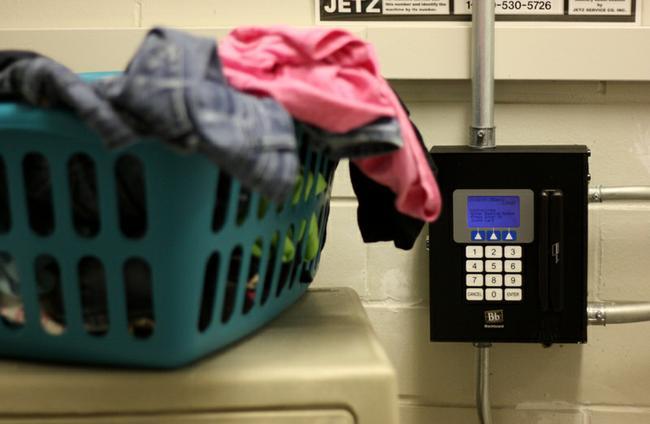
The Residence Halls Association and the Missouri Students Association are working together to provide a laundry quota for students living on campus.
Similar to MU’s printing quota, which allows each student $35 worth of printing services yearly anywhere on campus, the laundry quota will save students money and keep them from running up a expensive student charge bill in the name of washing clothes.
Each washing and drying cycle costs a minimum of $1.25. Higher heat or extended drying time requires an additional payment. Students who do two loads of laundry every week will spend at least $80 a semester.
RHA president Chris Rucker has been working on this issue since last year.
“Laundry service is not covered by financial aid, so it’s not covered under the estimated cost of attending the university,” he said.
With RHA’s support, he said he hopes to change that.
RHA is between two funding options. One would be similar to E.Z. charge in which students choose how much money to put in their laundry quota per semester and any leftover money would rollover for the following semester. The second possibility is similar to a dining plan, where students choose between three levels of laundry allotment, depending on their frequency of use.
RHA Speaker of Congress Kathy Rudd said she will soon contact the students who started MU’s Print Anywhere system.
“We want to talk to them to find out how they got their numbers and how they started the program,” she said.
MSA’s Student Affairs committee chairman Tyler Ricketts is working alongside RHA to see this change happen.
“We will survey students about how much laundry they do and use their answers to determine the tiers,” he said about calculating the three levels of a laundry plan.
Laundry charges appear on a student’s monthly bill. Rucker said many students have complained in recent years about the billing system, as the amount due is so small that they forget to pay and then receive an additional fine for late payment. A semester-long laundry quota would combat unnecessary fines and superfluous billing statements.
Ricketts cited some problems from the beginning that might not make this program doable, however.
“We’re still in the beginning phases to figure out if it’s even possible,” Ricketts said. “We’ve had conversations with residential life to see if their system will allow it.”
Ricketts said the main problem residential life mentioned is there is currently no way to create a “laundry account” within a student charge account. The inability to create a separate account for laundry services would render this proposal almost impossible.
Should this system be approved, it would be an opt-in selection on the housing contract, Ricketts said. This means the proposal would need to be approved before January in order to be viable for residents for the next school year.
“Because it’s a residential issue, we need the support of financial aid and student affairs to see this happen,” Rudd said.
The combination of efforts will increase the likelihood of seeing a laundry quota option on next year’s housing contract.
“Frankie Minor, the director of residential life, is in support of the idea,” Rudd said. “Right now, we are in the very beginning stages and are still working on the logistics.”